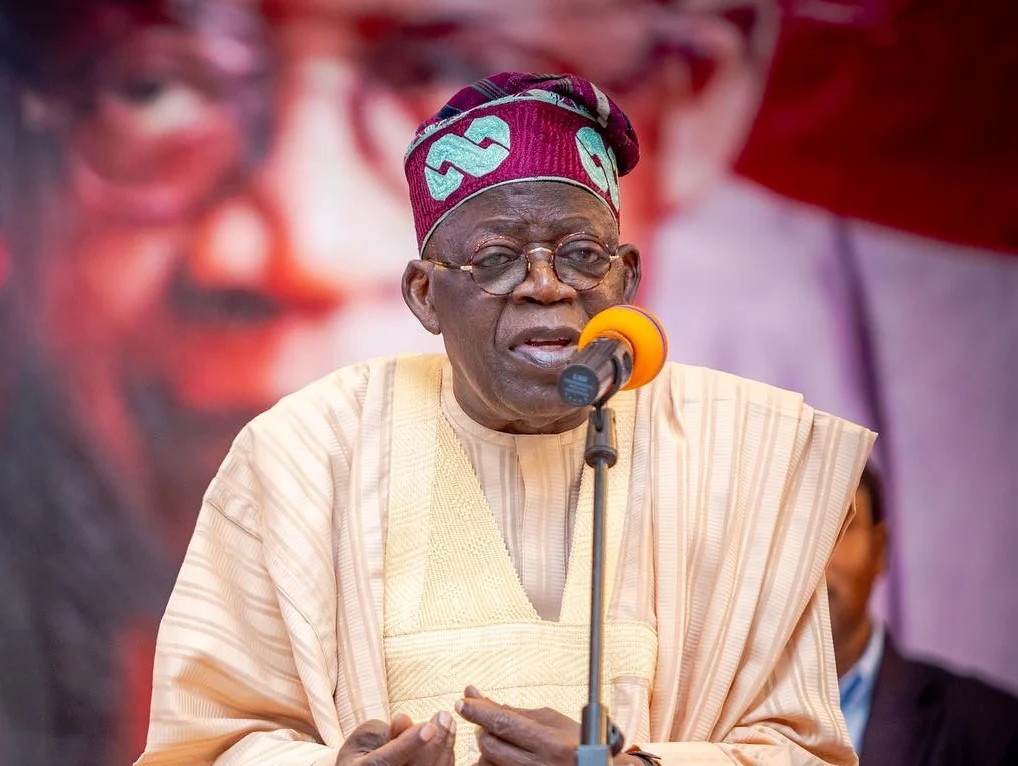Intrigues that worked in favour of Tinubu
Eleventh-hour intrigues, horse-trading and scheming, tilted in favour of the former governor of Lagos State, Asiwaju Bola Ahmed Tinubu, in his bid to become the candidate of the All Progressives Congress (APC) for the 2023 presidential election. The country’s political scene had been charged in the last 72 hours, with an atmosphere of suspense and […]

Bola Ahmed Tinubu
Eleventh-hour intrigues, horse-trading and scheming, tilted in favour of the former governor of Lagos State, Asiwaju Bola Ahmed Tinubu, in his bid to become the candidate of the All Progressives Congress (APC) for the 2023 presidential election.
The country’s political scene had been charged in the last 72 hours, with an atmosphere of suspense and confusion permeating the country. Issues revolving around the ruling party’s convention dominated the discourse on both social and traditional media due to the unclear permutations.
There was high-powered manoeuvring and power play among top power brokers in the country for days leading up to the convention which saw to the withdrawal of aspirants for the former Lagos governor. The withdrawals gave Tinubu an edge over other close contestants even though the contest was not yet over as of the time of going to press.
President Muhammadu Buhari and the 22 governors of the party were at the centrepiece of the drama which played out for weeks.
After series of meetings at the State House, Abuja, the party’s national secretariat and other locations, the National Chairman of the party, Senator Abdullahi Adamu, on Monday shocked the polity when he named the Senate President, Ahmad Lawan, as the consensus candidate of the party.
The declaration of Adamu was, however, rebuffed by the northern governors who insisted on their earlier position that power must shift to the southern part of the country.
Though the president distanced himself from Adamu’s declaration, sources said some people around him were involved in the whole saga.
As expected, when the plot to foist Lawan on the party collapsed like a pack of cards, the governors intensified moves to trim down the number of the aspirants as directed by President Buhari.
The president had during his meeting with the National Advisory Council of the party, including some governors, requested the trimming of the 23 aspirants ahead of the convention.
After late-night meetings with members of the National Working Committee (NWC) of the party at the national secretariat and villa, the governors submitted the names of five aspirants to the president in the early hours of Tuesday.
Exclusively, this newspaper reported the submission of the names of five southern presidential aspirants to President Buhari for consideration as the party’s flag bearer.
Those who made the list included Vice President Yemi Osinbajo, former governor of Lagos State, Asiwaju Bola Ahmed Tinubu, Governor Kayode Fayemi (Ekiti State), former Minister of Transportation, Rotimi Amaechi and Governor Dave Umahi (Ebonyi State).
“They picked one from South-East, one from South-South and three from South-West geopolitical zones in line with their position that power should shift to the South,” he said.
Swiftly, five aspirants rejected the governors’ list, saying they were not consulted before the governors arrived at the decision.
The aspirants are Cross River State Governor Ben Ayade; former Minister for State for Education, Emeka Nwajiuba; former Minister for Science and Technology, Ogbonnaya Onu; former Governor Rochas Okorocha; and businessman Tein Jack-Rich. They made this known in a joint statement on Tuesday, distancing themselves from the list.
Similarly, six aspirants from the South-East geopolitical zone wrote to the president, urging him to intervene during the convention for “proper guidance”.
For his part, Pastor Tunde Bakare dismissed the governors’ list, saying he was still in the race. Following the uproar that trailed the list submitted by the governors, President Buhari rejected it.
It was the collapse of the various moves including that by the South West leaders, South East elders and the governors that paved way for the conduct of election between the aspirants.
